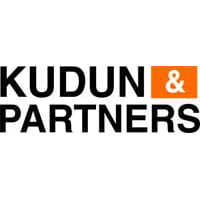
China 2019

Head of legal, Greater China | Abbott





Aaron Shao
Head of legal, Greater China | Abbott
Area lead counsel, China | Abbott Laboratories
Beginning his legal career working on foreign direct investment initiatives in the Shanghai Free Trade Zone, Aaron Shao built on this valuable experience by progressing to a rewarding career in...
In what ways do you see the in-house legal role evolving in your region over the next few years?
I personally see the in-house legal as a role that organically integrates the functions of a business manager with the functions of a legal advisor. Therefore, an in-house legal counsel should always look at things from the perspectives of both a business leader and a lawyer, and more importantly, try to achieve an effective balance between the two. These are actually comprehensive challenges and tests posed to in-house counsels with regard to the understanding of the company’s business, legal professionalism, judgment and execution capabilities, and even insights and influencing powers. Accordingly, future in-house legal roles must be equipped with these mind-sets, capabilities as well as perspectives to be successful and competitive.
How do you suggest in-house lawyers build strong relationships with business partners?
Nowadays, in-house lawyers very often name ourselves as “business partners”. The first step to build partnership is to think and act like a partner. A partner takes ownership, cares about results, and shares responsibility and risks. In my own opinion, these are the primary criteria that we should apply to ourselves in seeking a true business partnership. In other words, to be true business partners, in-house lawyers must be willing and capable to take sufficient ownership. This ownership resides not only in providing technical legal advice, but more importantly, in understanding business needs and operations, observing and anticipating changing external environments, assessing practical risks, putting together necessary resources, making balanced decisions as well as standing behind those decisions to take preventive or remedial actions. It is out of such sharing of ownership that in-house lawyers win trust, support and partnership with business clients.
Have any new laws, regulations or judicial decisions greatly impacted your company’s business or your legal practice?
Abbott’s business covers nutrition, diagnostics, medical devices and branded generic pharmaceuticals. These industries are all highly regulated and monitored from both legal and compliance perspectives. Continuously more stringent laws and regulations pose constant challenges to the company and our legal work. In China recently, for example, various new legislative activities around safety, regulatory control, pricing and fair-competition as well as privacy and cybersecurity all call for focused attention, thorough study, precise judgment and active anticipation for in-house roles.
What would you say are the unique qualities required to be successful as an in-house lawyer in your industry?
We have already talked a lot about how to be a business partner and a good in-house counsel. I believe all of those elements are particularly true and necessary for an in-house lawyer role in a highly-regulated industry like healthcare with ever increasing competition and fast changing external environments. I just want to highlight another very critical quality – knowing and helping people understand where the redline is in a precise and practical fashion. Spotting the redline is seemingly not hard for lawyers but may not be the same in a quickly changing environment with significant legislative vagueness and business needs to match competition in the so-called “grey areas”. How to clearly and practically draw redlines, with a developing view, again, opens the dialogue of our prior discussions around ownership, business savviness, judgement, anticipation, external focus and influencing powers.
When selecting a law firm, what criteria do you evaluate the potential firms by?
The primary criteria we use is whether this law firm can contribute added value. We expect our own in-house team to be experts in the sectors we are in and the day-to-day matters we deal with. When we outsource, we do that for capacity and value, but mainly the latter. Any firm we select on a specific matter must prove they can add incremental value in an effective and efficient way to the work or thoughts of an existing expert team. It is not always apparent and easy, but that is what we need. Rather than packaging outsourcing based more on relationships, we tend to select different expert counsels on different matters for different needs. Needless to say, work quality, business or industry savviness, flexibility in fee structures and responsiveness are common requirements we also use to evaluate a law firm’s work and performance. In short, we cherish relationships but pay for added value.
Do you use any “legal tech” products and do you find them a helpful management device?
Like many other in-house teams or law firms, we use i-manage as a data and document storage base and a couple of legal research engines. We are working on using e-platforms more in storing and sharing information and good practices. We also look forward to seeing what and how AI technologies will be applied to the legal industry to enhance management and increase effectiveness and efficiency. At the same time, this trend (which is starting already) will also be a revolutionary challenge to all lawyers as to how to resume the value of the work we do.